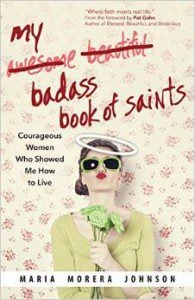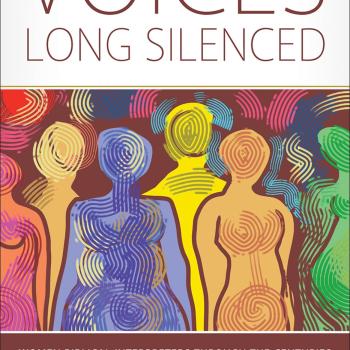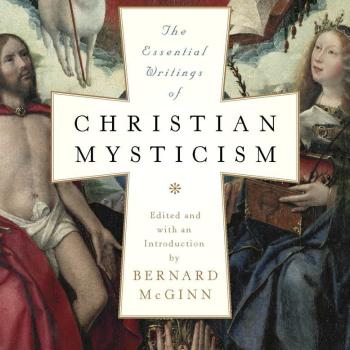One of the perks of being a Patheos blogger is the opportunity to review books for the Patheos Book Club. It’s a good program: the publisher provides Patheos with a carton of books, which are then distributed among the bloggers; our job is the read the books and write an honest response. Several of the book reviews I’ve posted here over the last few years have been part of this program.
Obviously the idea is to review books that are consistent with your blog’s overall focus. It wouldn’t make sense, for example, for me to review a book by an evangelical or an atheist. Not that I have anything against evangelicals or atheists (I have good friends and family members who identify as each) but I write as a contemplative Catholic with a little bit of Buddhist leanings. Why would I review a book filled with assumptions or beliefs that I simply don’t share? Thankfully, Patheos is a big enough tribe that for the most part, I only am asked to review books that “fit” my blog’s particular view.
 I’m presenting this lengthy backstory for today’s post because there is a bit of gendered humor surrounding the book I’m reviewing now. My latest book for the Patheos Book Club is My
I’m presenting this lengthy backstory for today’s post because there is a bit of gendered humor surrounding the book I’m reviewing now. My latest book for the Patheos Book Club is My Awesome Beautiful Badass Book of Saints: Courageous Women Who Showed Me How to Live by Maria Morera Johnson. It’s a fairly straightforward book of Catholic inspirational writing, one that I’m willing to blog about even though it’s not exactly a contemplative book (but more on that below). Nevertheless, it’s a Catholic book, and that fits me and my blog.
But… it’s specifically written for women readers. And despite my love for chick flicks, I’m a man and intend to remain one. Then again, roughly 50% of this blog’s readers are women, so I’m willing to crash the hen party and offer a few words about this book.
First of all, the title is great. I love my spirituality served up with a dash of irreverence, and Morera Johnson certainly delivers here.
The book is basically a woman’s rejoinder to Fr. James Martin’s wonderful memoir My Life with the Saints. In each chapter, Morera Johnson tells a bit of her own life story, and profiles two women — one a canonized saint, the other not — who exemplify a particular life lesson, value or virtue that applies to her own life — and by extension, to the lives of her readers as well. I was very impressed with the breadth of women profiled here: saints both well known and obscure (it was wonderful learning about St. Christina the Astonishing), and an even broader assortment of “non-canonized” saints, ranging from the usual suspects (Immaculée Ilibagiza) to delightful surprises (Flannery O’Connor). The author is even willing to include a few non-Catholics, like Audrey Hepburn, profiled not so much for her acting as for her humanitarian work.
My main gripe with the book is that while it’s very much a mainstream Catholic work, it ignores the rich contribution that women made to the theology of prayer (even though St. Teresa of Ávila gets profiled — but she’s praised for reforming her order, not for her mystical spirituality). No St. Hildegard of Bingen, no Julian of Norwich, no St. Thérèse of Lisieux. If anything, Morera Johnson seems uncomfortable with what she calls “a boring life filled with long periods of contemplation and silence” (p. xvi). She does a great job profiling women who were activists (whether canonized or not) — but a truly holy active life is fueled by contemplative spirituality, and that significant point never gets addressed in this book.
I suppose it’s inevitable, when reviewing a book like this, for the reviewer to complain about who isn’t included, so here goes. In addition to the contemplative women I’ve already named, I think the failure to include Dorothy Day (whom Pope Francis mentioned when addressing Congress last year) is a major flaw, and I personally would have included Sr. Helen Prejean as well. Would it have been too much to ask for truly “badass” women like Sr. Joan Chittister or Sr. Mary Margaret Funk (at the forefront of Christian-Muslim dialogue) to have been profiled as well?
But now I’m nitpicking — so I’ll stop here and say that if you’d like to read a gentle book that celebrates holy women in a way that busts out of the normal “good girl” stereotype, while remaining anchored in a mainstream conservative Catholic worldview, you’ll enjoy this one. Let’s just hope that Morera Johnson gets even more dangerous with her next book.
Enjoy reading this blog?
Click here to become a patron.


















